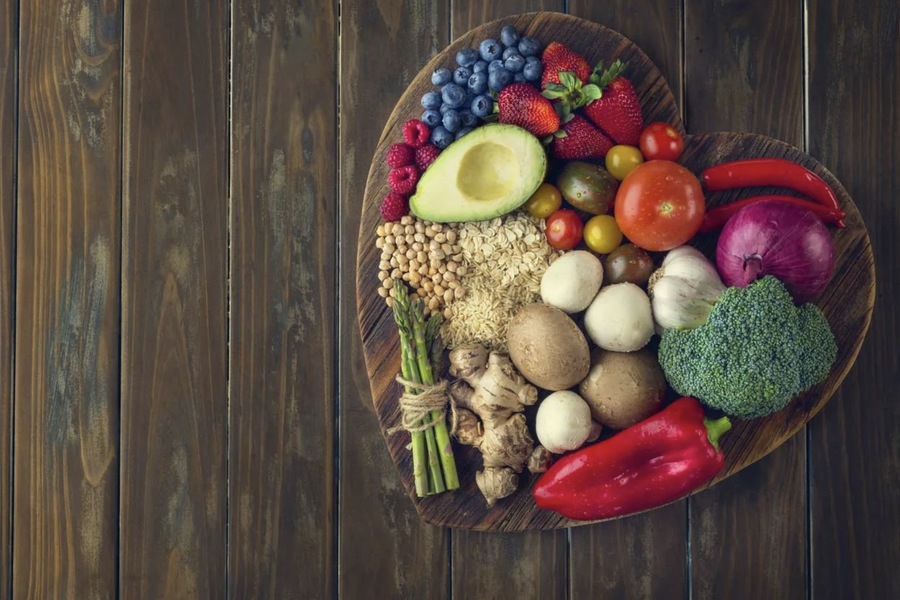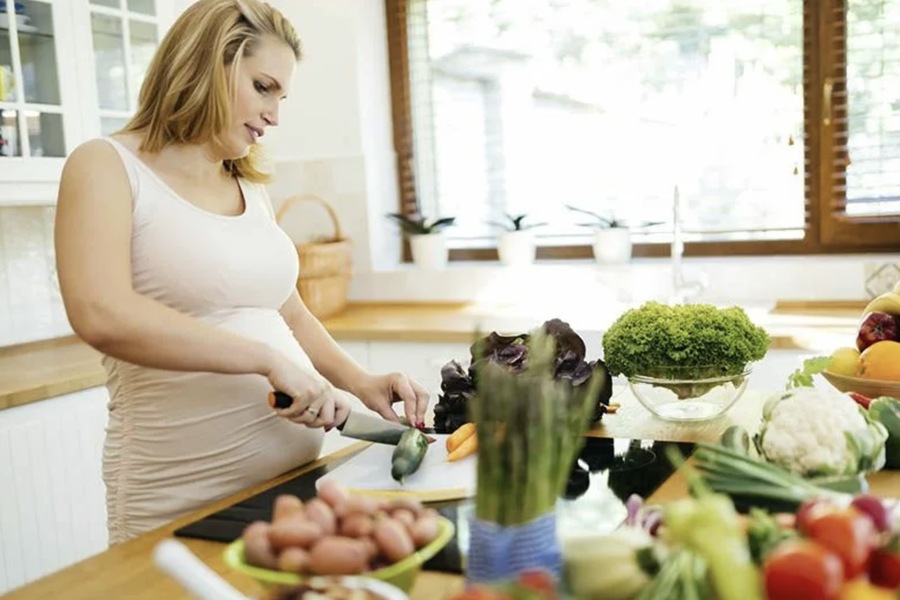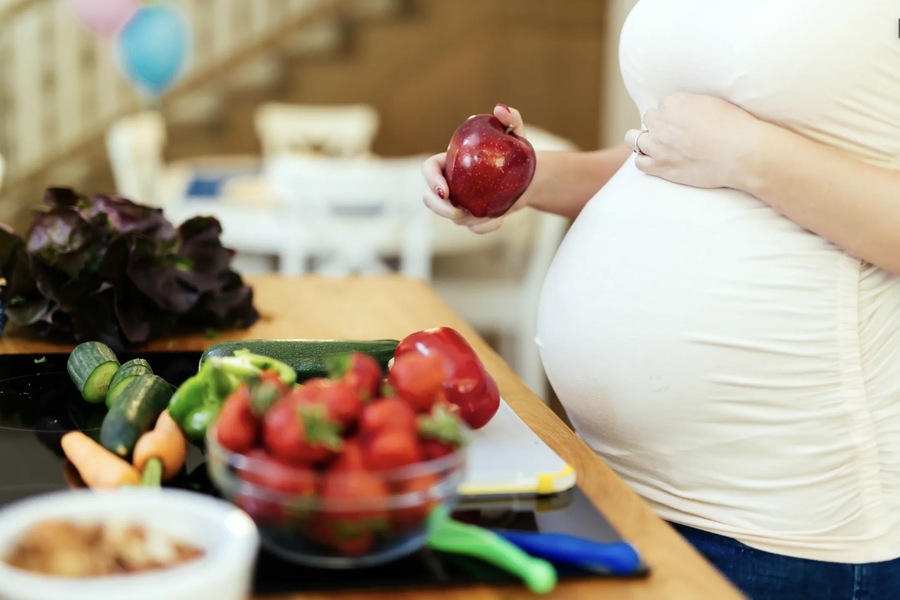Prenatal nutrition plays a vital role in supporting a healthy pregnancy, influencing maternal health and fetal development. Around the world, dietary traditions shape the foods consumed during pregnancy, and in a multicultural setting like the UAE, these differences are especially pronounced. This article delves into how diverse cultural perspectives on prenatal nutrition coexist within the UAE, exploring common dietary practices, traditional beliefs, and how they collectively influence the prenatal meal plan choices available to expectant mothers in this region.
The Influence of Emirati Dietary Traditions on Prenatal Nutrition
Emirati culinary culture incorporates high-nutrient foods that align with the dietary needs of pregnant women. Staple foods, such as dates, fish, and legumes, provide essential nutrients, including iron, omega-3 fatty acids, and folate. Dates, for example, are traditionally consumed for their nutrient density and high fiber content, which aids digestion and energy levels. Fish, commonly found in Emirati diets, provides omega-3 fatty acids, beneficial for fetal brain development. The emphasis on fresh, whole foods reflects local practices that prioritize nutrient-rich, minimally processed options, making these choices compatible with recommended prenatal nutrition guidelines.
Middle Eastern and North African Influences on UAE Prenatal Nutrition
Middle Eastern and North African (MENA) culinary traditions influence prenatal nutrition choices within the UAE. Foods like chickpeas, lentils, and whole grains, which are common in MENA diets, contribute protein and fiber, supporting healthy digestion and muscle function. These diets often include yogurt and labneh, which provide probiotics and calcium, essential for fetal bone development. Traditional spices like turmeric and ginger, also found in MENA cuisine, are sometimes recommended in moderation for their anti-inflammatory properties, promoting digestive comfort for expectant mothers.
South Asian Cultural Dietary Practices in Prenatal Nutrition
South Asian diets, prevalent among the UAE’s expatriate population, are often vegetarian-based and rich in lentils, beans, rice, and spices. Lentils and beans offer plant-based proteins and are high in iron, while rice serves as a versatile carbohydrate source. Turmeric, a common spice, contains curcumin, which has anti-inflammatory properties. However, many South Asian pregnant women might adjust spice intake to prevent digestive discomfort. Foods rich in folic acid, such as spinach and legumes, are emphasized, supporting fetal development and cellular growth during pregnancy. This balance of nutrients aligns well with prenatal dietary recommendations.

Western Dietary Patterns and Prenatal Nutrition in the UAE
Western dietary patterns influence prenatal nutrition practices in the UAE, particularly among the expatriate population. Foods like dairy products, lean meats, and fortified cereals are common in Western diets, providing protein, calcium, and iron. Fortified cereals are especially valued for their B vitamin content, including folic acid, which supports early fetal development. Western diets may also emphasize portion control, which is beneficial in managing healthy weight gain during pregnancy. Expectant mothers in the UAE with Western dietary preferences can easily access these foods through local supermarkets, promoting balanced prenatal nutrition.
East Asian Cultural Approaches to Prenatal Nutrition
East Asian dietary practices emphasize a balance of carbohydrates, proteins, and fats, often found in dishes like rice, tofu, and green vegetables. In prenatal diets, foods like tofu provide plant-based proteins, while leafy greens offer iron and folate. Seaweed, a traditional East Asian ingredient, is high in iodine, which supports thyroid function, essential for fetal brain development. While East Asian cuisine traditionally incorporates soy and fish products, some women may choose to limit raw fish consumption during pregnancy. However, steamed or baked fish, high in omega-3 fatty acids, is a common choice that aligns with prenatal dietary needs.
The Role of Dates in Emirati and Regional Prenatal Nutrition
Dates hold a unique place in the prenatal diets of Emirati and other Middle Eastern cultures. Rich in fiber, natural sugars, and essential minerals like potassium and magnesium, dates are a traditional snack that supports digestion and provides quick energy. Studies suggest that consuming dates in the later stages of pregnancy may support labor due to the nutrients that promote uterine muscle health. Available widely across UAE markets, dates are a staple in prenatal diets, providing valuable nutrients in a culturally familiar and readily accessible form.
Spices and Herbs in Cultural Prenatal Diets
Herbs and spices play a role in traditional prenatal diets across many cultures in the UAE. Turmeric, ginger, and cumin, commonly used in South Asian and Middle Eastern cuisines, offer digestive support and mild anti-inflammatory benefits. In moderation, these spices help manage mild pregnancy-related discomforts like nausea and indigestion. Garlic, another common ingredient, is included in many dishes for its potential cardiovascular benefits. Expectant mothers often adapt their intake based on dietary tolerance, ensuring that spices and herbs complement rather than disrupt their digestive comfort.
Legumes and Pulses as Cultural Staples in Prenatal Nutrition
Legumes and pulses, such as chickpeas, lentils, and beans, are integral to the diets of various cultures within the UAE, particularly Middle Eastern, South Asian, and African communities. These foods are protein-dense, supporting tissue development and iron absorption. The high fiber content of legumes also aids in digestion, preventing constipation, a common pregnancy discomfort. Legumes are affordable, versatile, and widely available across UAE grocery stores, making them a convenient and culturally accepted choice for expectant mothers seeking plant-based protein options.
Fish Consumption and Omega-3 Intake Across Cultures
Fish is a vital source of omega-3 fatty acids, essential for fetal brain development, and is traditionally included in many Emirati, South Asian, and East Asian diets. Pregnant women in the UAE often select locally available, low-mercury fish varieties such as mackerel and sardines. Omega-3s are also found in nuts and seeds for those who prefer plant-based options. Regular intake of these nutrient-dense fish aligns with international prenatal nutrition guidelines, while the diversity of seafood options in Dubai allows for tailored choices to meet cultural and individual preferences.
Calcium-Rich Foods and Prenatal Bone Health
Calcium is crucial for fetal bone development, and different cultural diets address this need through various foods. Emirati and MENA diets often include yogurt and labneh, while Western diets frequently rely on dairy products like milk and cheese. In South Asian and East Asian diets, plant-based sources of calcium, such as tofu, leafy greens, and sesame seeds, are popular. Pregnant women in the UAE have access to these culturally specific options, allowing them to meet calcium needs in ways that resonate with their dietary preferences.
The Impact of Food Accessibility on Cultural Diet Choices in the UAE
The UAE’s diverse food markets and supermarkets cater to a wide range of cultural dietary needs. Supermarkets in Dubai provide various ingredients, from whole grains to fresh vegetables and dairy products, facilitating the inclusion of traditional foods in prenatal diets. The availability of imported goods from different regions also means that pregnant women can access culturally familiar foods, whether they are seeking South Asian spices, Middle Eastern legumes, or Western dairy options, thus allowing for personalized prenatal nutrition.

The Role of Traditional Beliefs in Prenatal Diet Choices
Cultural beliefs often shape dietary practices during pregnancy, influencing the choice and avoidance of certain foods. For instance, some cultures avoid specific spices or “heating” foods to prevent discomfort, while others emphasize “cooling” foods to promote maternal comfort. These beliefs, passed down through generations, impact prenatal diet choices, allowing mothers to adhere to familiar practices while meeting nutritional needs. Such cultural considerations contribute to a diverse approach to prenatal nutrition within the UAE, respecting both tradition and nutritional science.
Integrating Cultural and Nutritional Guidelines in a Prenatal Meal Plan
In the UAE, healthcare providers often work with expectant mothers from various cultural backgrounds, guiding them in integrating traditional dietary practices with modern nutritional recommendations. While cultural foods provide essential nutrients, balanced prenatal meal plans can include culturally diverse options that meet the specific needs of pregnancy. Health professionals in the UAE may suggest nutrient-dense, culturally relevant foods, ensuring a prenatal diet that aligns with both cultural values and health standards.
Adapting Prenatal Nutrition to Meet Health Recommendations
Expectant mothers in the UAE are encouraged to adapt their diets to meet the changing needs of pregnancy while incorporating traditional foods. For instance, while fish consumption is valued in many diets, mothers are advised to choose low-mercury options to maximize omega-3 intake safely. Similarly, while whole grains and legumes are traditional sources of fiber and protein, mothers are guided on portion control to manage healthy weight gain. Balancing traditional foods with evidence-based dietary guidance supports optimal prenatal health for mothers across cultures.
Conclusion
Prenatal nutrition in the UAE reflects a convergence of cultural diversity, with Emirati, Middle Eastern, South Asian, Western, and East Asian dietary practices contributing to a rich dietary landscape. Each cultural diet brings unique foods and nutritional benefits, offering expectant mothers a variety of choices that align with both tradition and health needs. Through access to culturally familiar ingredients, integration of traditional practices, and guidance from healthcare providers, pregnant women in the UAE can navigate a balanced and nourishing prenatal diet that respects cultural roots and promotes maternal and fetal health.

I am a career coach with more than 5 years of experience, helping job seekers navigate their job search through individual coaching, webinars and events. I am motivated by the mission to help people find self-fulfillment and belonging to their career.
